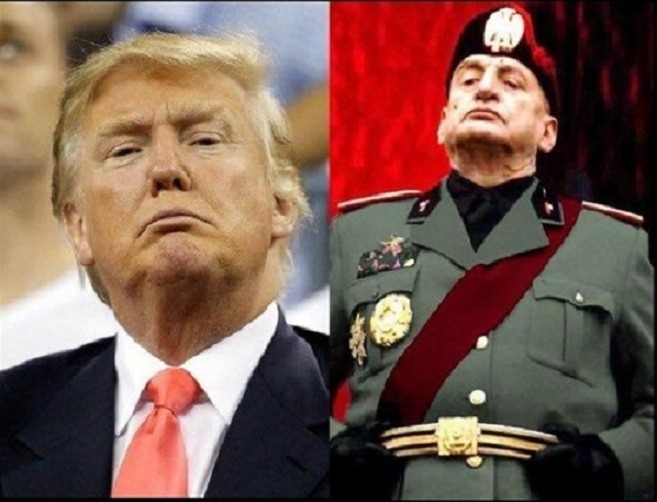urrent and former intelligence officials last week acknowledged that decades of intelligence assessments and policies toward China that viewed the Communist Party-ruled government in Beijing as a benign power are no longer valid.
Michael Collins, deputy assistant CIA director and head of the agency's East Asia Mission Center, said during a security conference that classified assessments outline the agency's record on China but that China is expanding its global ambitions.
Critics have said the CIA failed to properly assess major strategic developments in China as a result of "group think" that sought to play down or ignore many of Beijing's threatening activities.
The Pentagon also was slow to recognize China's emergence as a major strategic competitor that is seeking to replace the United States as the leader of the international political and economic order.
Asked if the CIA harbored a benign view of China that resulted in failures to accurately assess China, Collins said the matter is secret.
"Can't speak to classified assessments, it just goes a long way to say you don't have all the access you think you have in terms of understanding what the intelligence community knows about this issue," Collins told the Washington Free Beacon in remarks to a security forum in Aspen, Colorado.
"I will say, however, it's a very good question," he said. "But it's a larger question, about the international system and what is it that has happened in the international system, in response to China, positively or negatively over time, that I would argue has been a big factor in explaining why the ambitions of the Chinese have so expanded."
Collins described the
The journal Foreign Affairs recently published a debate titled "Did America get China wrong?" based on an article by former diplomats Kurt Campbell and Ely Ratner who called for new policies toward China based on the failure of decades of U.S. engagement policies to mitigate the China threat.
Today, China's military has fielded advanced naval, ground, air, and missile forces including anti-satellites missiles and cyber attack capabilities that could allow Beijing to defeat the U.S. military in a future conflict.
A recent Rand Corp. study concluded that U.S. military forces are so poorly structured the United States is in danger of losing a future war with China.
During successive administrations, official U.S. government policies toward China have sought to play down the danger from China, insisting China not be viewed as a threat but as a state to be engaged through trade and diplomacy.
Pro-China policies increased since the 1980s when official U.S. government statements insisted China posed little or no threat, to policies of overt support for the communist government in Beijing.
For example during the administration of President George W. Bush, then-Secretary of State Condoleezza Rice once stated the U.S. government favored "a strong China."

The Trump administration sharply changed course. In December, the White House National Security Strategy, in a major policy shift, declared China to be a strategic competitor. The Pentagon followed in January with a new Pentagon defense strategy that identified Beijing as a strategic threat, along with Russia.
Aggressive Chinese spying and theft of technology, largely carried out unimpeded in previous years, is now a major counterintelligence priority. Last week, FBI Director Christopher Wray disclosed that Chinese spies pose the "most significant" intelligence threat to the United States.
Trump has been most aggressive with the new policy toward China in the area of unfair trade practices and China's large-scale theft, by cyber and other means, of strategic American technology. The president recently set off a trade war with Beijing by imposing tariffs on Chinese goods.
China has responded to years of conciliatory U.S. policies by seeking to alter the balance of power in its favor.
Several U.S. intelligence assessments have faulted CIA analysis of China.
A 2005 special U.S. intelligence assessment produced for the director of national intelligence stated that American spy agencies missed more than a dozen key Chinese military developments, including new weapons systems.
https://freebeacon.com/national-security/u-s-benign-china-policy-ending/
Michael Collins, deputy assistant CIA director and head of the agency's East Asia Mission Center, said during a security conference that classified assessments outline the agency's record on China but that China is expanding its global ambitions.
Critics have said the CIA failed to properly assess major strategic developments in China as a result of "group think" that sought to play down or ignore many of Beijing's threatening activities.
The Pentagon also was slow to recognize China's emergence as a major strategic competitor that is seeking to replace the United States as the leader of the international political and economic order.
Asked if the CIA harbored a benign view of China that resulted in failures to accurately assess China, Collins said the matter is secret.
"Can't speak to classified assessments, it just goes a long way to say you don't have all the access you think you have in terms of understanding what the intelligence community knows about this issue," Collins told the Washington Free Beacon in remarks to a security forum in Aspen, Colorado.
"I will say, however, it's a very good question," he said. "But it's a larger question, about the international system and what is it that has happened in the international system, in response to China, positively or negatively over time, that I would argue has been a big factor in explaining why the ambitions of the Chinese have so expanded."
Collins described the
emergence of a threatening China as "a didactic evolving aspirations the Chinese have," he said. "That is, they are learning to be more coercive, learning to be more aspirational, learning to be more assertive by what they're getting away with."
The journal Foreign Affairs recently published a debate titled "Did America get China wrong?" based on an article by former diplomats Kurt Campbell and Ely Ratner who called for new policies toward China based on the failure of decades of U.S. engagement policies to mitigate the China threat.
Today, China's military has fielded advanced naval, ground, air, and missile forces including anti-satellites missiles and cyber attack capabilities that could allow Beijing to defeat the U.S. military in a future conflict.
A recent Rand Corp. study concluded that U.S. military forces are so poorly structured the United States is in danger of losing a future war with China.
During successive administrations, official U.S. government policies toward China have sought to play down the danger from China, insisting China not be viewed as a threat but as a state to be engaged through trade and diplomacy.
Pro-China policies increased since the 1980s when official U.S. government statements insisted China posed little or no threat, to policies of overt support for the communist government in Beijing.
For example during the administration of President George W. Bush, then-Secretary of State Condoleezza Rice once stated the U.S. government favored "a strong China."

The Trump administration sharply changed course. In December, the White House National Security Strategy, in a major policy shift, declared China to be a strategic competitor. The Pentagon followed in January with a new Pentagon defense strategy that identified Beijing as a strategic threat, along with Russia.
Aggressive Chinese spying and theft of technology, largely carried out unimpeded in previous years, is now a major counterintelligence priority. Last week, FBI Director Christopher Wray disclosed that Chinese spies pose the "most significant" intelligence threat to the United States.
Trump has been most aggressive with the new policy toward China in the area of unfair trade practices and China's large-scale theft, by cyber and other means, of strategic American technology. The president recently set off a trade war with Beijing by imposing tariffs on Chinese goods.
China has responded to years of conciliatory U.S. policies by seeking to alter the balance of power in its favor.
Several U.S. intelligence assessments have faulted CIA analysis of China.
A 2005 special U.S. intelligence assessment produced for the director of national intelligence stated that American spy agencies missed more than a dozen key Chinese military developments, including new weapons systems.
https://freebeacon.com/national-security/u-s-benign-china-policy-ending/




